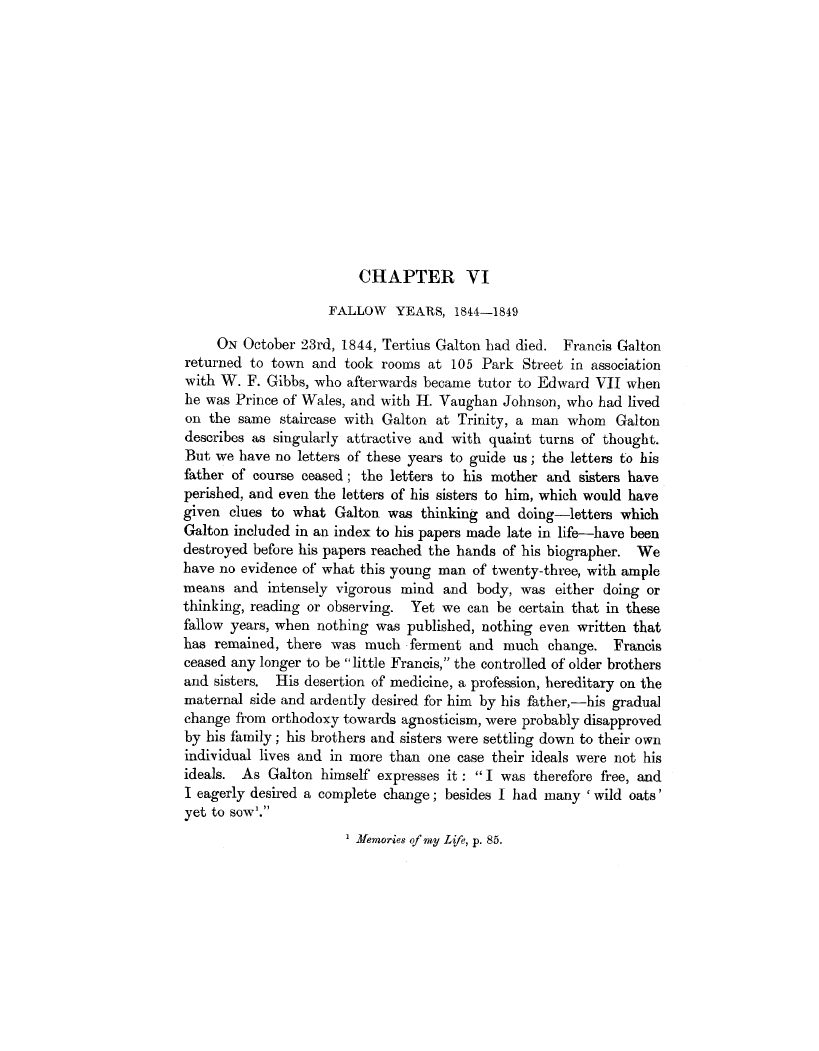CHAPTER VI
FALLOW YEARS, 1844-1849
ON October 23rd, 1844, Tertius Galton had died. Francis Galton returned to town and took rooms at 105 Park Street in association with W. F. Gibbs, who afterwards became tutor to Edward VII when he was Prince of Wales, and with H. Vaughan Johnson, who had lived on the same staircase with Galton at Trinity, a man whom Galton describes as singularly attractive and with quaint turns of thought. But we have no letters of these years to guide us ; the letters to his father of course ceased ; the letters to his mother and sisters have perished, and even the letters of his sisters to him, which would have given clues to what Galton was thinking and doing-letters which Galton included in an index to his papers made late in life-have been destroyed before his papers reached the hands of his biographer. We have no evidence of what this young man of twenty-three, with ample means and intensely vigorous mind and body, was either doing or thinking, reading or observing. Yet we can be certain that in these fallow years, when nothing was published, nothing even written that has remained, there was much ferment and much change. Francis ceased any longer to be "little Francis," the controlled of older brothers and sisters. His desertion of medicine, a profession, hereditary on the maternal side and ardently desired for him by his father,-his gradual change from orthodoxy towards agnosticism, were probably disapproved by his family ; his brothers and sisters were settling down to their own individual lives and in more than one case their ideals were not his ideals. As Galton himself expresses it : " I was therefore free, and I eagerly desired a complete change ; besides I had many `wild oats' yet to sow'."
' Memories of my Life, p. 85.
